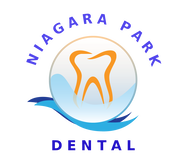|
When parents say: “They are only baby teeth, they are going to fall out anyway” they have the wrong impression. The child’s dental visit sets the tone for lifelong dental health. The fact is, primary teeth serve as the guides for the permanent teeth and are critically important to the health and function of their adult successors. What’s more, primary teeth are the child’s teeth for most of childhood — children don’t usually begin losing them until about age six, and the last primary teeth aren’t lost until around age twelve. It’s just as important to care for them as for the permanent teeth that come later. Prevention is the key: The importance of primary teeth and preparing for a lifetime of good oral health are the main reasons why parents should bring their children to see a dentist. It’s more than just a casual visit. Early dental visits may also reveal underlying conditions that may indicate future problems, and determine how often follow-up visits might be needed. Children with low risk for oral or dental disease might only be seen annually or semi-annually until the baby teeth are all fully erupted in the mouth and in occlusion. Children assessed at high risk might be seen as often as every two to three months. Treating Tooth Decay One of the prime purposes for an children dental visit is to examine the child for a number of forms of tooth decay, that can affect babies and small children. For many years, health and childcare professionals have recognized a specific pattern of such decay, known as Baby Bottle Tooth Decay (BBTD). BBTD was believed to be primarily associated with the use of a sleep-time bottle that contains a liquid with natural or added sugars such as formula, or juice. It generally occurs between the ages of twelve to eighteen months. In recent years, similar cases of early and severe tooth decay have been found in children who do not fit the classic BBTD pattern of bottle use. The term Early Childhood Caries (ECC) is now being used to reflect a broader concept of the problem of tooth decay in infants and young children. ECC includes cavities associated with many causative factors, mostly sugars. These include continuous use of a “Sippy-cup,” at-will breast-feeding throughout the night, use of a sweetened pacifier or the regular use of sugar-based oral medicine to treat chronic illness. ECC first affects the upper front baby teeth, which usually erupt at around eight months of age, followed by the primary back teeth, which begin to erupt at about twelve months of age. At its most severe stage, ECC may then affect the lower front teeth. ECC is really much like any other type of tooth decay, dependent on the presence of three conditions: bacteria in dental plaque on the teeth, unprotected teeth and the right mix of carbohydrates from food and drinks, such as natural or refined sugars. Break the cycle: Because all three of these conditions must be present for a cavity to form, there are at least three opportunities for intervention: (1) eliminate or reduce the bacteria through oral hygiene; (2) reduce the presence and frequency of carbohydrates by dietary changes; and/or (3) make the tooth more resistant through the use of fluoride. Conclusion:There is mounting evidence that a child’s oral health is closely tied to his or her mother’s. This is why it is important that parents promote their own oral health through regular dental visits and proper hygiene habits
0 Comments
Your comment will be posted after it is approved.
Leave a Reply. |
AuthorArticles are written by Dr M Hajarat. Archives
July 2024
|
|
Niagara Park Dental
3 / 16 Washington Avenue Niagara Park, NSW 2250 Email: [email protected] Phone: (02) 4329 3003 |
HOURS
Mon 9:00 - 5:30 Tue 9:00 - 5:30 Wed 9:00 - 5:30 Thu 9:00 - 5:30 Fri 9:00 - 5:30 |
|






